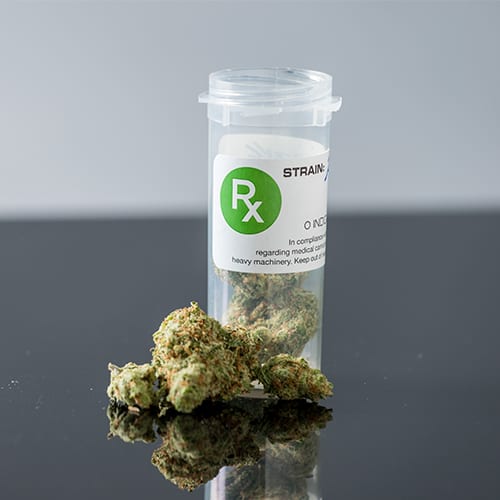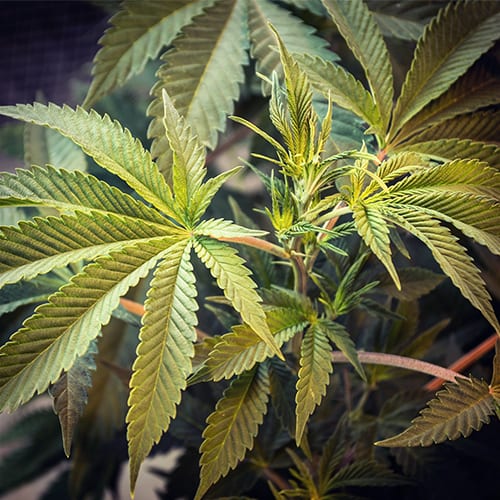
The U.S. Senate and House of Representatives both took action to increase military veterans’ access to medical marijuana on Thursday.
By a vote of 89-8, senators approved a bill containing language preventing the Department of Veterans Affairs (V.A.) from spending money to enforce a current policy that prohibits its government doctors from filling out medical marijuana recommendation forms in states where the drug is legal.
The House approved an amendment to accomplish the same goal by a vote of 233-189 earlier in the day.
“We are pleased that both the House and Senate have made it clear that the Veterans Administration should not punish doctors for recommending medical cannabis to their veteran patients,” Mike Liszewski, government affairs director for Americans for Safe Access (ASA), told Marijuana.com. “Combat veterans are disproportionately affected by several conditions that medical cannabis can effectively treat, including chronic pain, PTSD and traumatic brain injury. We anticipate this amendment will reach the president, and once signed, it will give V.A. physicians another tool in their toolbox to treat the healthcare needs of America’s veterans.”
The provisions are now part of a larger bills to fund the V.A. and other government agencies through next year. The medical cannabis language was attached to the Senate legislation last month in bipartisan vote of 20-10 in the Appropriations Committee, and did not require a separate vote on the floor.
Last year the Senate approved the Fiscal Year 2016 version of the V.A. spending bill, with similar medical cannabis protections for veterans attached, but the House narrowly defeated a move to add the amendment to its version of the legislation by a vote of 213-210. As a result, the provision was not included in the final omnibus appropriations package signed into law by President Obama in December.
Since then, momentum on medical cannabis and broader marijuana law reform issues has continued to increase. Last month, for example, Pennsylvania became the 24th state in the U.S with a comprehensive medical marijuana program. This month the Ohio House of Representatives approved medical cannabis and, on Thursday, Louisiana Gov. John Bel Edwards (D) signed a medical marijuana bill into law.
U.S. House and Senate negotiators will meet in a conference committee to iron out the discrepancies in funding levels and other differing provisions between each chamber’s version of the spending legislation. But since both now include medical marijuana protections for veterans, it is likely that they will make it into the final package sent to President Obama for enactment into law.
“I commend my colleagues for showing compassion and supporting our wounded warriors,” Rep. Earl Blumenauer (D-OR), who sponsored the amendment on the House floor, said in a press release. “Today’s vote is a win for these men and women who have done so much for us and deserve equal treatment in being able to consult with, and seek a recommendation from, their personal V.A. physician about medical marijuana.”
The V.A. policy disallowing its doctors from recommending medical marijuana in states where it is legal actually expired on January 31 but, under the department’s procedures, the ban technically remains in effect until a new policy is enacted.
Advocates expect a new policy soon, but aren’t sure what it will say. In February 2015, a top V.A. official testified before a House committee that the department is undertaking “active discussions” about how to address the growing number of veterans who are seeking cannabis treatments.
The language of the House and Senate veterans medical marijuana protections differ somewhat.
The Senate bill reads:
None of the funds appropriated or otherwise made available to the Department of Veterans Affairs in this Act may be used in a manner that would—
(1) interfere with the ability of a veteran to participate in a medicinal marijuana program approved by a State;
(2) deny any services from the Department to a veteran who is participating in such a program; or
(3) limit or interfere with the ability of a health care provider of the Department to make appropriate recommendations, fill out forms, or take steps to comply with such a program.
Whereas the House bill says:
None of the funds made available by this Act may be used to implement, administer, or enforce Veterans Health Administration directive 2011-004 (or directive of the same substance) with respect to the prohibition on “VA providers from completing forms seeking recommendations or opinions regarding a Veteran’s participation in a State marijuana program”.
While the Senate language seems more all-encompassing, advocates believe that whichever approach is included in the final enacted legislation will be sufficient to give veterans greatly expanded access to medical cannabis.
A trio of Democratic senators submitted an additional amendment this week intended to spur medical cannabis research by the V.A., but it did not receive a vote on the Senate floor.
Attention now turns to separate Congressional appropriations bills that fund other parts of the government, most importantly legislation that covers the Justice Department. For the past two years, advocates have succeeded in attaching language to the bill preventing the Drug Enforcement Administration and other Justice Department agencies from spending money to interfere with state medical marijuana and industrial hemp laws. A move to broaden the protections to cover all state marijuana laws, including full legalization, narrowly failed on the House floor last year but could now have enough increased support to pass if voted on again.
Advocates will also continue pushing to add protections for banks that work with legal marijuana businesses to legislation covering the Treasury Department. And, there could be votes concerning the District of Columbia’s ability to spend its own money taxing and regulating marijuana sales.
“This is an historic moment and further proof there is real movement and bipartisan support in reforming outdated federal marijuana policies,” said Blumenauer, of the victory for veterans. “There is more to be done, and I will build on today’s momentum and continue my efforts in catching federal policy up to reflect the views held by a majority of Americans.”
Read more http://www.marijuana.com/blog/news/2016/05/congress-oks-medical-marijuana-for-military-veterans/
Source – Marijuana.com





